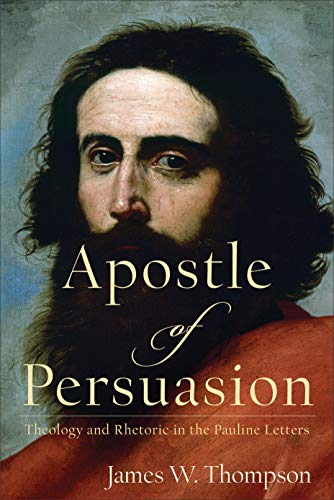Q. You say in the Introduction that theology and rhetoric are inseparable parts of Paul’s effort to convince or persuade his audience in regard to their behavior (and I would add in regard to various of their beliefs as well— e.g. about resurrection in 1 Cor. 15). I entirely agree with you about this— the goal is the moral transformation of the audience. This also means that theology and ethics are also not neat discreet categories for Paul. His ethics are inherently theological in character, and his theology has ethical goals. I was once taught by a Calvinist that all theology is grace, and so all ethics is just our response in gratitude for what ‘God hath wrought’. This always struck me as not quite right if indeed working out one’s salvation with fear and trembling’ is one part theological and one part ethical, involving the believers co-operation and efforts. Would you agree? Do you think various Reformation theological categories have skewed the way we look at Paul’s theology and rhetoric?
A. Yes, the division of theology and ethics cannot be made in Paul’s letters. One only needs to look at his thanksgivings/prayers at the opening of his letters. They express thanks for the listeners’ faith, hope, and love (1 Thess.), and they pray that the readers will be blameless at the day of Christ. The ethical sections are integrated throughout the letters. In neither Corinthian letters can we make a sharp distinction between theology and ethics. In 2 Corinthians, for example, we learn our ethics from Paul’s own autobiographical statements that demonstrate how his moral life is intertwined with his theology of the cross.













